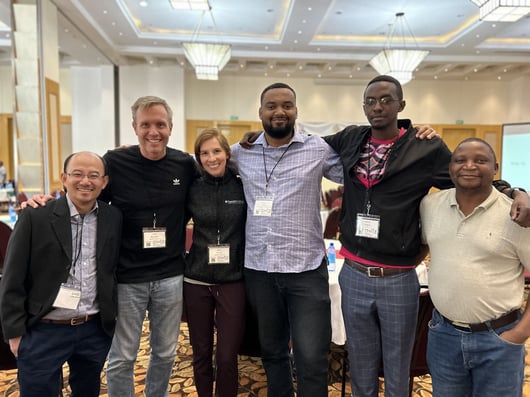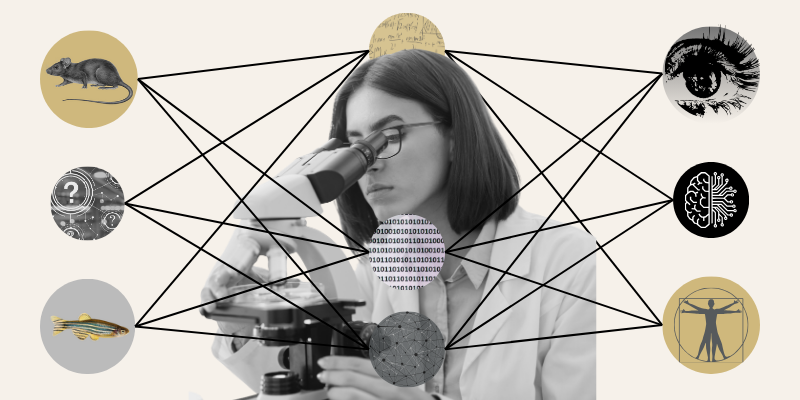Being able to follow a patient’s progression through a health system is an important factor for care in any nation, but it can be more difficult in developing countries that face greater technological and data-related challenges.
Toan Ong, PhD, associate professor in the University of Colorado School of Medicine Department of Biomedical Informatics, is helping develop a toolkit to guide countries experiencing high rates of HIV infection in creating patient identity management systems that could improve patient health while bolstering research and policy discussions.
The toolkit is being tailored to countries that are funded through the U.S. President’s Emergency Plan for AIDS Relief (PEPFAR), which has invested more than $100 billion in the global HIV and AIDS response since its implementation in 2003.
Countries that create such a management system – especially countries that have a government-run healthcare system – would assign an identifier to patients so that they can be more easily tracked as they receive care for different reasons or in different clinics.
Ong is looking at best practices for using biometric information, such as fingerprints or facial recognition, to identity patients.
“It's very important for the health care provider to understand the picture of a patient’s health, especially to avoid duplicating lab testing and ensure they are prescribing the right medications,” explains Ong, who in May attended an OpenHIE conference, which is focused around creating and building resources for health information exchange, particularly in developing countries.
Problem solving abroad
The conference, which took place in Lilongwe, Malawi in May, reinforced the need for the work Ong and others around the world are doing to establish better standards for technology and data in health care. Traveling more than 9,000 miles from the CU Anschutz Medical Campus to the conference meant Ong could really dig into the problems he and his colleagues are seeking to solve.
Ong’s goal was to discover the kinds of data countries are already working with, what challenges they have, and how they might benefit from using a patient identity management system.
“Being at the conference in person allowed me to have numerous one-on-one discussions with people,” Ong says. “I don’t think any number of virtual meetings can replace the interactions that I had with other attendees.”

Toan Ong, PhD, far left, poses for a photo with fellow attendees of the OpenHIE conference in Malawi in May 2023.
The sets of challenges researchers face in developing a toolkit range from a country having reliable access to electricity and internet, especially in remote towns, to figuring out what types of information they can realistically use in a patient identity management system.
“These countries can have problems with data quality,” Ong explains. “Many people don’t know their birthday. Sometimes the most they can say is that it was a rainy Sunday. In other countries, they might not know which village they were born in because they were moved around a lot as a child. And even if they do, the official records might not reflect that accurately.”
Ong arrived in Malawi wanting to know more about how developing countries are using technology, how they’re already matching patients through different systems, what challenges they experience, and what they want to ultimately achieve with an identity management system.
He has a forthcoming publication that examines those questions and his findings.
Local solutions, global health
Ong and researchers recognize that potential solutions are not one-size-fits-all. Countries, even if on the same continent, face varying challenges.
“Our jobs as researchers are to learn from these challenges, learn about the solutions, and try to make them available so other countries can learn from them,” he says.
Ultimately, that could have an impact on global health.
Ong says when researchers want to create surveillance systems for diseases, they might look at many databases. But in countries without a health information management system, recording the number of patients gets tricky because they might be on multiple databases, especially if they’ve seen multiple providers or visited more than one clinic.
“That’s a big deal when it comes to policy making decisions and resource allocation,” Ong says.
In the PEPFAR-funded countries, this could greatly improve care for patients while also finding better ways to address the problem on a grander scale.
While there is no silver bullet for every challenge each nation faces, Ong says, he’s hopeful that a toolkit will help guide countries toward solutions that work for the patient and their communities.

.png)

.png)
